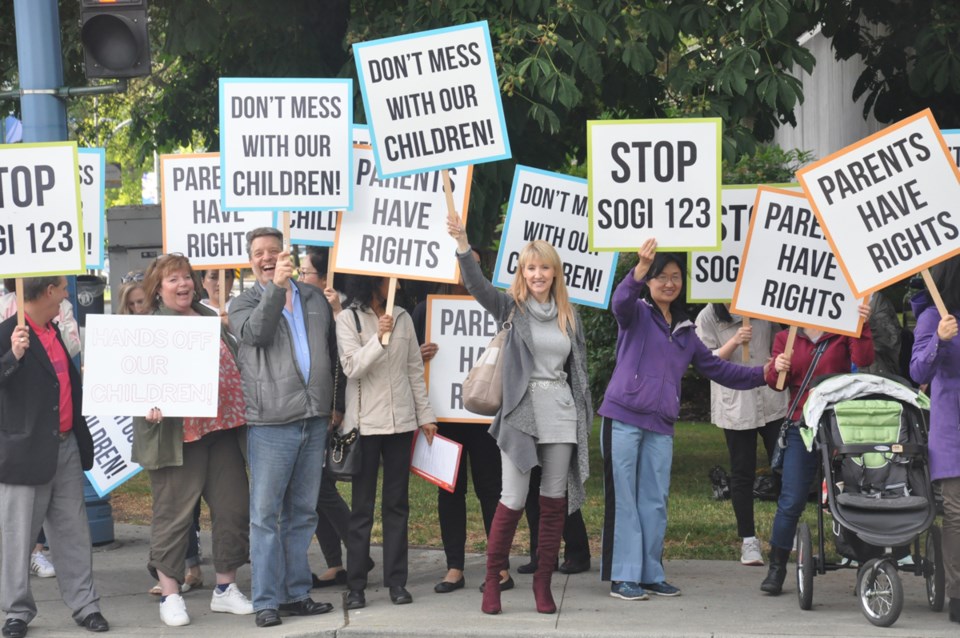Dear editor,
Here are a few misperceptions that I've encountered in the conversations and feedback I've heard from some folks in the community:
-
"The policy is about endorsing the SOGI 123 curriculum"
The new policy is not specifically about curriculum. The policy supports educating students about the sexual and gender diversity in our society.
The Ministry of Education's SOGI 123 resources for teachers offer suggested lesson plan and other resources to help teachers fulfill this objective; however, there is no specific curriculum that teachers are required to follow in this area.
One advantage to using the resources available is that they have been designed by educators and child development specialists to include age-appropriate content for each grade. (These resources are available to view online)
-
"The policy elevates the rights of one group over other groups"
This is simply not true. While other demographic groupings have enjoyed protection of their rights in our schools, LGBTQ+ students, families and staff have not had their rights upheld.
For example, (for gender minority students) - rights such as equal access to washroom and change facilities; or to be called by their preferred name or pronoun.
And for all LGBTQ+ students - rights such as being able to see and hear themselves and/or their family configurations reflected in library and classroom resources - basically, the right to have their existence acknowledged and affirmed.
While other groups can expect to have these rights affirmed on a daily basis, LGBTQ+ students have not experienced this. And the Code of Conduct, while addressing bullying and harassment in general, is not specific enough to help guide those in our schools in knowing what protocols and practices will concretely support the rights of these students.
It is simply categorically untrue that supporting the rights of one group currently experiencing inequity will result in diminished rights for others.
-
"The policy means children will be actively persuaded by teachers to question their gender or orientation"
Again, this is completely untrue. Educating children about diversity of any kind means giving them accurate information and fostering understanding and respect, not trying to promote or persuade anyone of anything.
For example, teaching children about the different kinds of world religions and teaching respect for different religious views is completely different than telling them that one particular religion is better or the "right" one, or attempting to convert them from one religion to another.
-
"The SOGI policy is “teaching an ideology”
While there are groups in our society that would attempt to deny the legitimacy of gender and sexual diversity, the fact is that people of diverse sexual orientations, gender identities and expressions do exist and are part of society.
Additionally, sexual orientation and gender identity & expression are now protected under the BC Human Rights Code. As such, it is the school district's mandate as a public institution to uphold all human rights, including LGBTQ+ students' right to equal access to a safe and inclusive school learning environment.
-
"The policy infringes on the right to free speech"
While free speech is a right, a person does not have the right to say something that would infringe on the right of someone else to not be harassed.
In the school context, this means that it's not ok to call someone names, or tell someone that an aspect of their identity (especially one protected by the BC Human Rights Code) is wrong.
Any denigrating or humiliating statements are deemed harassment or bullying, and would contravene the district Code of Conduct.
Trustee Sandra Nixon
Richmond



